Adrian Cuevas was unsure how players would receive his first game as an independent developer. Sure, he knew a thing or two about developing video games—with 10 years of experience, his name can be found in the end credits for triple-A games from Ubisoft Montreal and IO Interactive. And yet, following last December’s release of Gris, he found himself searching online for reactions to his a 2D side-scroller about depression and grief.
“When we try to do this type of game, we feel attached to it but we’re not objective,” Cuevas said. “We put our heart in every corner and it is really hard to know if people are going to feel it.”
His search was not in vain. Numerous clips were posted online, some from a livestream, others from players eager to discuss the game’s ending. A late-game chase scene caught a streamer by surprise, prompting laughter from the player and from Cuevas.
“The first time I saw people crying at the end, I was really, really happy. It was truly emotional for me,” he said. “Every time I see that, I cry myself, I feel so proud. There’s someone in the middle of the U.S. who’s crying because what we did—they’re crying not because of sadness but because of happiness, and that’s exactly what we wanted to do.”
Gris is the first game from the Barcelona-based Nomada Studio and was created by studio co-founders Cuevas and Roger Mendoza, along with creative director and renowned artist Conrad Roset. Named after the Spanish for “grey,” Gris is a platformer where players navigate an increasingly colorful world as an unnamed, blue-haired protagonist. The game’s watercolor artwork, music and unspoken story revolve around the process of grief, as the protagonist copes in silence following the loss of a loved one.

Credit: Nomada Studio
Nomada’s debut adds to a growing list of games that address mental health issues. Since the critical and commercial success of Gone Home in 2013, narrative games big and small have taken risks to explore mental health challenges—and have often garnered recognition for doing so. Games about solitude and anxiety like Celeste and Hellblade: Senua’s Sacrifice have gone head-to-head against triple-A titles in year-end lists. Square Enix’s Life is Strange, an episodic coming-of-age tale that touched upon concerns of suicide and depression, has sold more than three million copies since it’s 2015 release, according to its developer. Gris has found similar fanfare since it’s release last year, with three nominations picked up at this year’s BAFTA Game Awards and, per Nomada, more than 300,000 copies sold.
During the first year of development, Cuevas said the studio consulted a psychologist about theories of depression and grief. As part of the consultation, the group discussed themes, symbols, and possible game progression elements related to grief, he said.
“When we talked to this psychologist, we started getting all of these ideas: we have to show this in gameplay, we have to show this—that the character feels and the player feels that something is wrong with this girl,” Cuevas said. “For example, at the beginning of the game [your character] cannot even jump or do anything but interact, and that’s a part of the shock.”
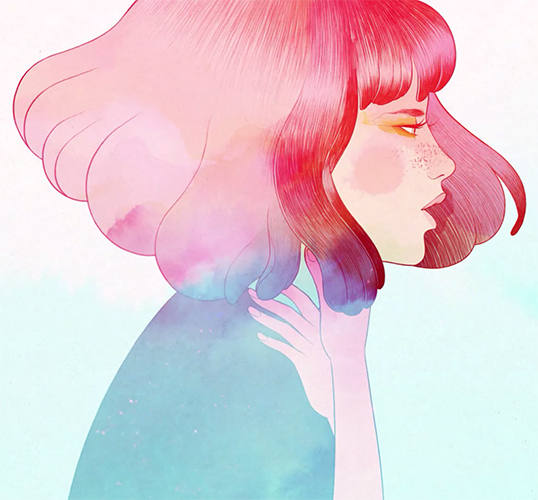
Credit: Nomada Studio
As the game progresses, so does the protagonist’s personal journey through grief, with each level seeing her gain new abilities. One world finds the protagonist fighting back against the angry winds of a red desert. Another world plunges the girl into a murky ocean, as depression pulls her into deeper waters. The adventure culminates in a moment where the protagonist regains the ability to sing and rises above the game’s final obstacles.
It’s a game of emotional highs and lows, Cuevas said, and one he’s glad to see resonate with gamers.
“We’ve received a lot of emails saying this game has helped them,” he said. “There was an email that will stick with me forever—there was a guy telling us that a brother died the week before. He couldn’t even talk about it for a week and then he played the game, he played it in one day, and it helped him cope with this and it helped him so he could talk to his family again. I’ve done triple-A games—Far Cry, Hitman, Rayman, whatever—but I doubt that any game has touched anyone so personally as it has with this one, and I couldn’t be happier.”
“It’s okay not to be okay”
Games like Gris that tackle themes of depression and mental health challenges have been on the rise in the last few years—a shift in the gaming world that can be seen elsewhere in entertainment, said Take This executive director Eve Crevoshay.
“I have a real delight about the astonishing diversity of ways in which people are bringing thoughtful and careful representations of mental health challenges to games that really validates people’s experiences,” Crevoshay said. “Even in games that don’t explicitly address mental health, I see so many people find identification and context for the challenges they experience in their everyday life. The way that video games let you inhabit characters in the world, in context that aren’t necessarily your own, just speaks to the power of what games bring to people’s lives.”
Take This is a nonprofit organization that advocates to decrease the stigma of mental health and increase the support for better mental health for game players and the games industry. Since its formation in 2012, Take This’ work has expanded. For the past five years, Take This has reserved and operated AFK rooms at games conventions like PAX and E3. At an AFK room, convention goers can take a break from the busy show floor and calm down thanks to the help of volunteer mental healthcare practitioners. An ambassador program for streamers began at PAX West last year, where Take This trained streamers how to best discuss mental health challenges and create a positive community with their viewing audience.
“The drumbeat is getting louder and the ability for folks to have come out and talked about their own mental health experience has substantially increased,” she said. “We just continue to do that. We continue to say the words, ‘It’s okay to not be okay.’ The more we say that, the more it becomes okay to say that or talk about it.”
Take This also offers consultation work to game developers, advising on projects that feature mental health challenges with the help of its staff’s clinician.
“Don’t try to generalize, don’t try to make it universal because these experiences aren’t necessarily universal, they just have to be accurate,” Crevoshay said. “When it comes to mental health challenges and trauma in particular, a lot of developers recognize, ‘Well, everybody’s story or experience in trauma is very specific,’ and if you see one situation, that’s one situation, it’s not broadly applicable. But if you are really true to that situation, if you are really true to that specific situation, then you are doing right by a portrayal, if you get specific and accurate in one case.”
Fight together, heal together
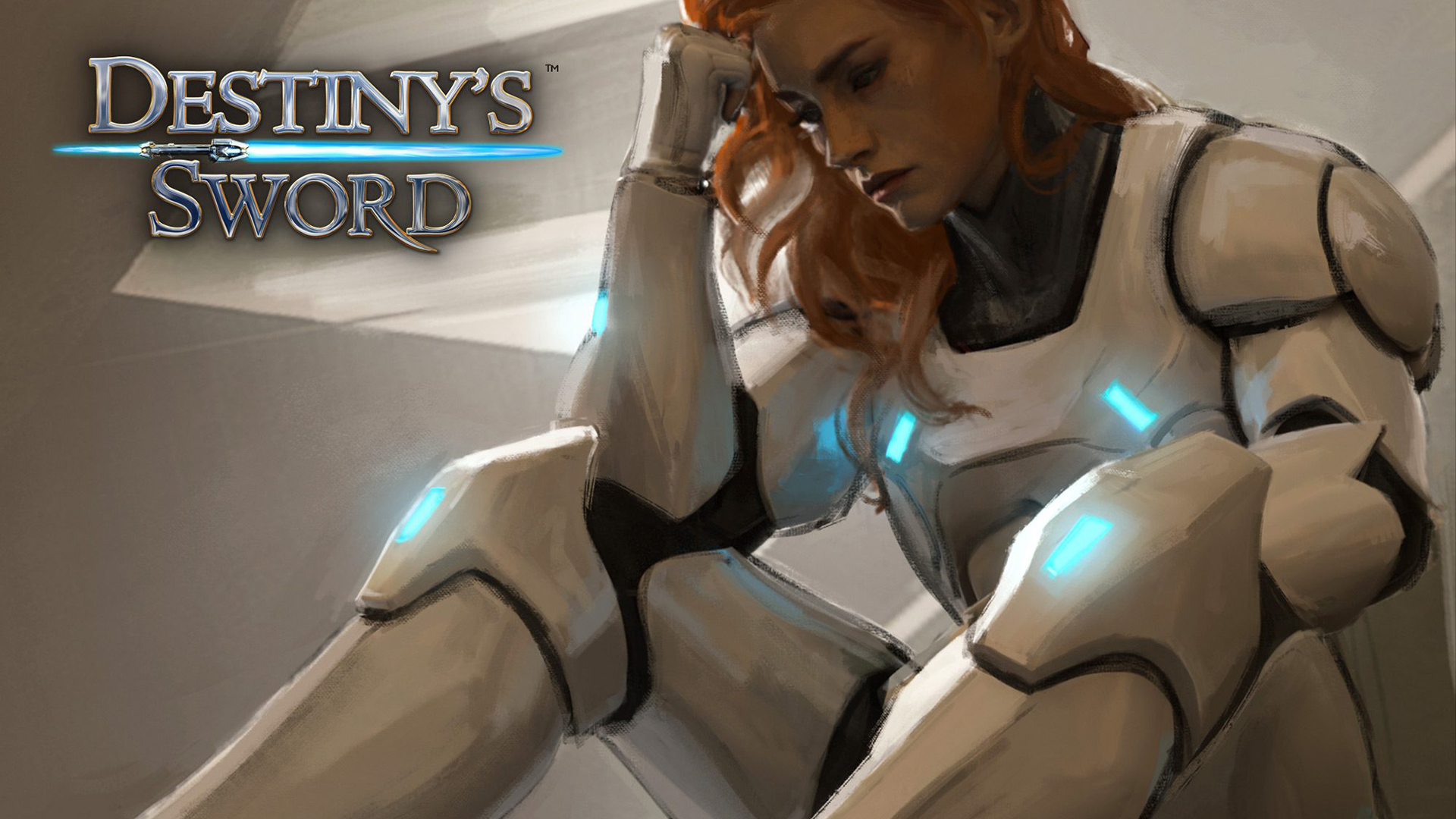
Credit: 2Dogs Games
Crevoshay said Take This is currently consulting with developers on Destiny’s Sword, an upcoming strategy combat game from Canadian studio 2Dogs Games. Destiny’s Sword, slated for a 2020 beta launch, tasks players with managing the mental health of a squad of futuristic soldiers.
Ken Hall, CEO of 2Dogs Games and creative director of Destiny’s Sword, said the idea for the MMORPG came after working on a historical flight simulator game.
“I was liaising with the veterans while working on the project and it became really apparent that all the movies we’d watched, all the books we read only dealt with a few seconds that these guys pulled the triggers,” Hall said. “It didn’t deal with how these guys get back on these planes, day-in and day-out over years at a time.… So we kind of thought our entertainment could do a better job depicting some of those longer-term consequences and also raise awareness about mental health in general at the same time.”
As the commander of a squad, Hall said players will learn how to best manage and engage their soldiers on an emotional level from battle to battle. Hall said the game utilizes an insight engine that provides each character with a unique backstory, history and ongoing life story. Based on psychologist Rober Plutchik’s “wheel of emotions,” each character has an emotional state axis grid that reflects their emotional levels for eight categories: joy, trust, fear, surprise, grief, disgust, anger, and interest. In-game and meta-game experiences can affect each category, ranging from the psychological impact of a long, drawn-out battle or in the form of a soldier receiving bad news about their family back home.
“It might even be that we have to find out that information from another character, they might come up to you and say, ‘I want to tell you something,’ and you talk to that character and they say, ‘I’m worried about this character because he’s not been eating like he would normally do,’ or, ‘She’s not been sleeping,’” Hall said. “Our goal ultimately is to find this dialogue with the affected character and encourage them to seek treatment. And that’s what we really wanted to normalize, it’s that we all deal with mental health issues and that it’s okay to reach out for support.”
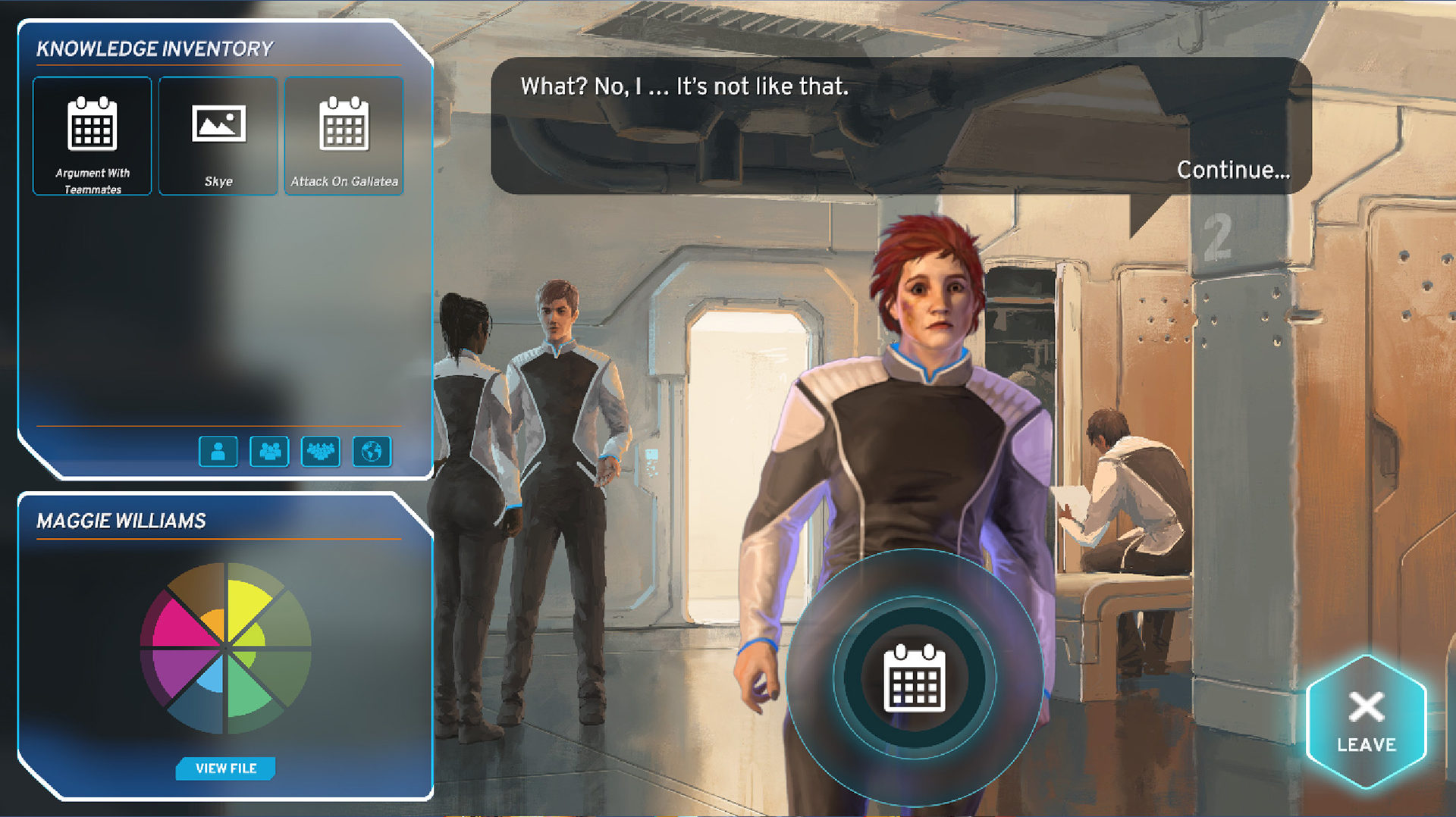
Credit: 2Dogs Games
Hall said the studio’s work with Take This has helped advise the developers on strategies for helping support people who are dealing with mental health challenges and how to best support the recovery process. Additionally, the studio has received consultation from Canadian Forces veteran support group Spartan Wellness and the Alan Alda Center for Communicating Science. Hall said he understood how elements of Destiny’s Sword could be potentially triggering for veterans who play the game, saying the team recently brought its PAX East demo script to a group of Canadian Forces veterans to play.
“One of them was a very accomplished medic in the Canadian Forces and he said he found that somewhat triggering as he was reading it,” Hall said. “He said, ‘I’ve been on both sides of this: I’ve been the commander sending people out who were dealing with these things and I’ve been the guy in the field struggling with this,’ but ultimately he felt it was a really positive cathartic experience to go through because it really helped him understand what was making him feel that way.”
With its dynamic management gameplay, Hall said he hopes Destiny’s Sword can help break stigmas surrounding those with mental health challenges.
“A lot of the experiences these characters go through are positive. It’s not all doom and gloom,” he said. “We’ve got to get away from the stigma that all mental health issues are debilitating psychotic breaks and that people who suffer from them are unstable or unsafe. A lot of times the mental health issues these characters are dealing with are small things that we have to manage like you’d manage their armor or weapons or their ammunition.… Sometimes you’re playing the long game with these characters and that’s another thing we wanted to address, that there’s not always a quick fix solution. Sometimes you have to help your characters through it, and on the other side you’ll come out stronger and better for it.”
“Treat people like people, not like apps”
While the team behind Destiny’s Sword consider mental health and warfare of the future, the developers at Chance Agency look towards the future of ridesharing services, gig labor, and wearable healthcare technology in Neo Cab.
Set in the fictional futuristic city Los Ojos, the choice-based narrative adventure game stars Lina, the last human cab driver. As a cab driver, players choose who to pick up next, how to keep a five-star driver rating and earn enough money to find a place to sleep at the end of each night. In addition to the balancing act of being a cab driver, Lina wears a bracelet device that displays her emotional state to each customer. Different player choices and dialogue opportunities will vary depending on Lina’s emotional state.
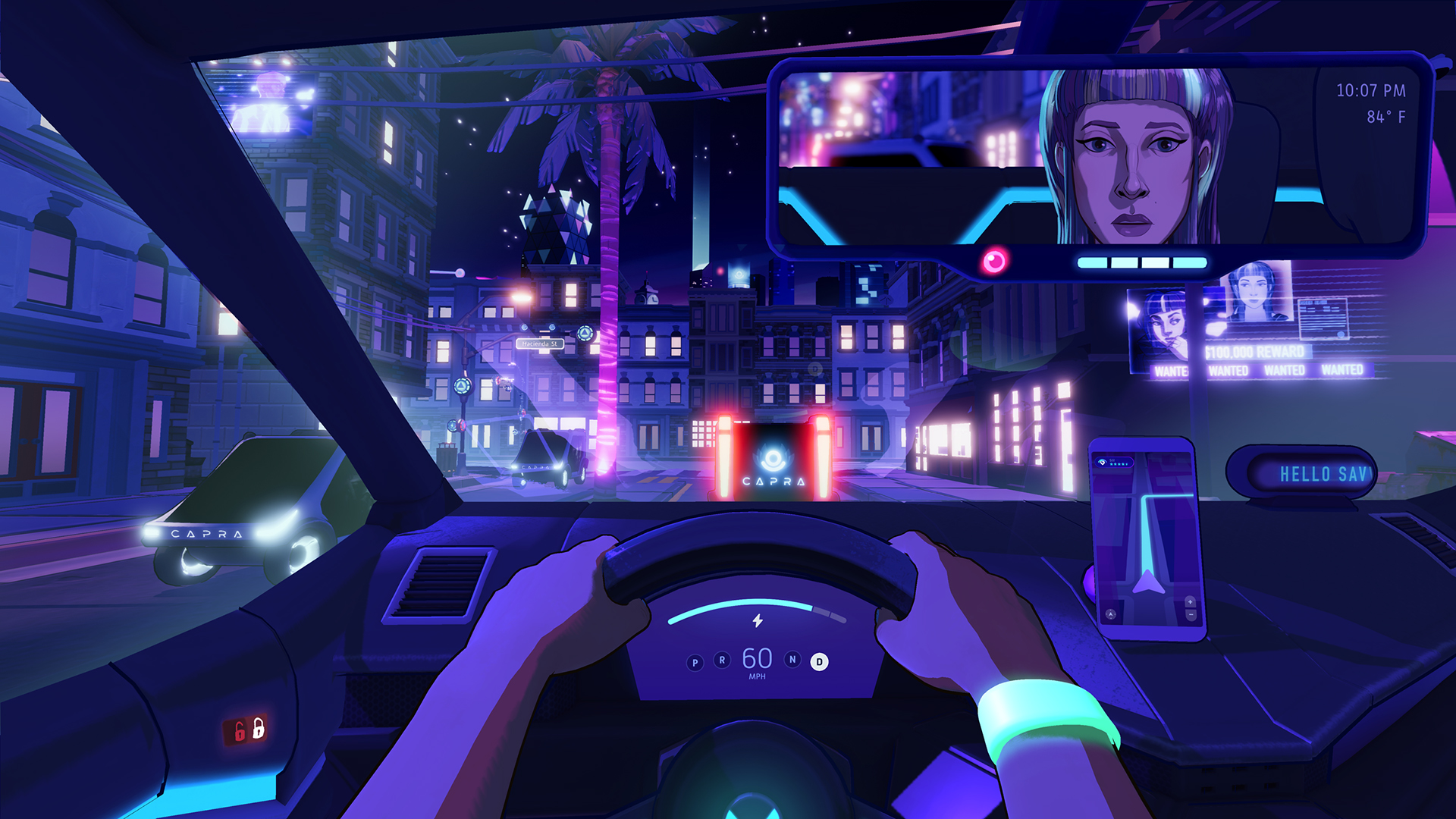
Credit: Chance Agency
Patrick Ewing, creative lead of Neo Cab, said the studio has worked hard to veer away from creating a narrative game that simplified choices as either “good” or “bad.”
“If it was just a classic game where you could choose to be an asshole or a saint, there’s only two ways to play it and there’s no dynamics there because the correct way to play is to be a saint all the time but people are going to want to be honest and not be a perfect service worker,” Ewing said. “I noticed people who work in the service industry often have to unlearn those patterns when they play the game, because of the tendency to always be obsequious, that ‘the-customer-is-always-right’ is so ingrained.”
Ewing said the initial idea for the studio’s first game came several years ago when he was just a young writer. In 2011, Ewing wrote a short story about a protagonist that struggled with their emotional health and was given a bracelet that would make their emotional state visual to others around them.
“I think that the idea of what would make that real, what would the effects of that be on society, making that visible has been interesting to me for a long time,” Ewing said.
Neo Cab will be Chance Agency’s first game, with the developing studio forming in 2017 following Ewing’s departure from Campo Santo.
“We were talking game ideas and Neo Cab kind of from the get-go was, ‘How fascinating would it be to be navigating a near-future city, picking up cyberpunk weirdos, learning their stories?’” he said. “I knew that if we were going to discuss the job aspect, kind of like Papers, Please or Cart Life, that emotional labor was core to that experience.”
The developers researched and read driver forums in preparation for the game, as well as conducted interviews with drivers who had experience with companies like Lyft, Uber, Postmates, and Zesty. Ewing said the personal stories discussed during those interviews—from questions like, “What’s the scariest ride you’ve ever had?” and, “What’s the ride that gave you faith in humanity again?”—were what lent the game its noir storytelling aspects.
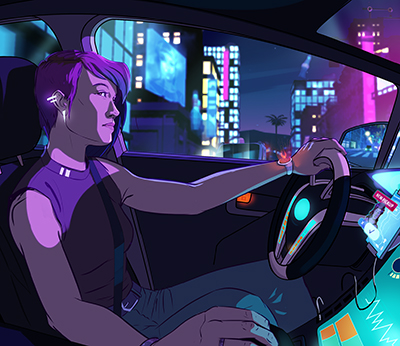
Credit: Chance Agency
“One of our guideposts have been ‘there’s no such thing as a bad emotion,’” Ewing said. “We never wanted to make it that ‘oh, this game’s about suppressing your anger’ or ‘this game is about always being happy.’ Instead, we wanted this character to be a real person with real emotional triggers and real patterns and habits, where there were times where maybe it was right to let your anger out or there are times where you meet someone who is sad and being sad with them could actually both make you feel happy at the end.”
With the game expected to launch this year for the Nintendo Switch and PC, Ewing said he hopes the game encourages players to reconsider how they act with service workers.
“If you think your cab driver wants to talk, maybe talk to them,” he said. “Our tagline is ‘stay human,’ and what we mean by that is not ‘resist cyberpunk transplants’ or ‘don’t use computers.’ It’s ‘treat people like people and not like apps.’”
Video games invite moments of self-realization and have the unique ability to promote empathy—at the press of a button, you can comfort a sad passenger in the back of your cab, provide moral support to your fellow soldiers, or sing a sad song to remember a loved one.
“People want to explore these things in a safe space so they can become more comfortable with their own issues,” he said. “We’re drawn to characters who have these struggles they have to overcome and maybe it’s just a sign of the times that most of our biggest battles right now to overcome, instead of being sent off to war or [worrying] about the plague, we’re trying to save our friends from depression or suicide or lead more fulfilling lives.”
Header image: Nomada Studio
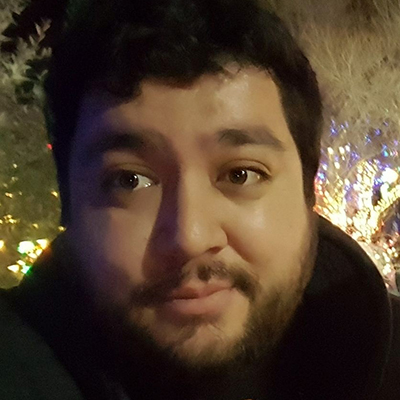
Antonio Sanchez is a freelance reporter from New Mexico living in Michigan. He has published work at Variety and IGN. Follow him on Twitter @HeyAntonioS.
